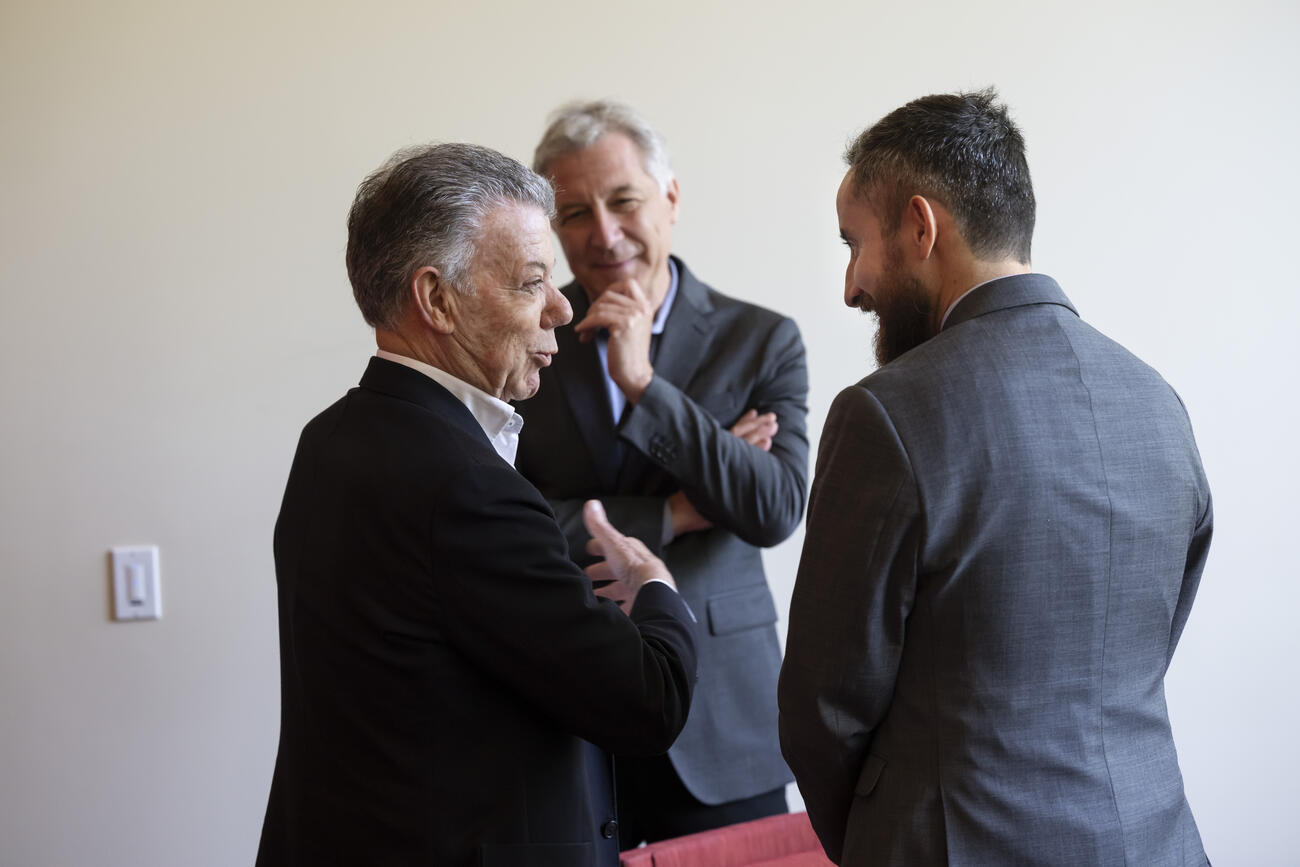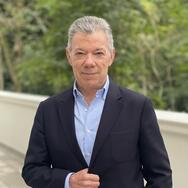Santos, who received the Nobel Peace Prize in 2016 for his efforts to end a five-decades-long civil war with a guerrilla group that killed more than 200,000 people in the South American country, served as president of Colombia from 2010 to 2018.
Known as a tenacious negotiator, Santos said, “The big challenge in the 140 conflicts currently in the world is that leaders need to sit down and talk in very constructive ways.”
Titled “The Power of Long-View Leadership,” the event included opening remarks from Alberto Díaz-Cayeros, senior fellow at the Freeman Spogli Institute for International Studies (FSI), as well as a brief response followed by an audience Q&A moderated by Héctor Hoyos, director of the Center for Latin American Studies.
Díaz-Cayeros said, “This discussion is especially timely and vital today as we confront global challenges – not only here in the United States but throughout the hemisphere and around the world – that demand both moral courage and a strategic vision.”
Listening, talking
In November 2024, Santos was appointed Chair of The Elders, the organization founded by Nelson Mandela to advocate for peace, justice, human rights, and a sustainable planet.
In his address, Santos explained the process of bringing the guerrilla group – the Revolutionary Armed Forces of Colombia, or “FARC” — to the peace negotiating table. A meeting in the late 1990s with Mandela, the South African anti-apartheid activist, was particularly inspirational.
“He taught me why that program (in South Africa) to bring victims and perpetrators together to reconcile for the future was so important,” said Santos, who described it as the most interesting conversation he’s ever had about peacemaking.
So, he started studying peace processes all around the world — the ones that were successful, the ones that failed, and the ones that still held out hope. Gradually, he identified the conditions that were necessary to begin an authentic peace process with the FARC.
“What had my predecessors done wrong? What could I bring from other examples around the world?” He came to understand that three key conditions existed in the Colombian dynamic.
“As long as the guerrillas think that they will win through violence,” Santos said, “they will never sit down in good faith. They have to be convinced that they will never achieve power through violence. Second, the leaders of the guerrillas themselves personally have to be involved in the negotiations.”
Finally, he said, Colombia’s neighbors needed to support the peace process, or the guerrillas would always use those neighbors as safeguards and not commit to the peace process.













































